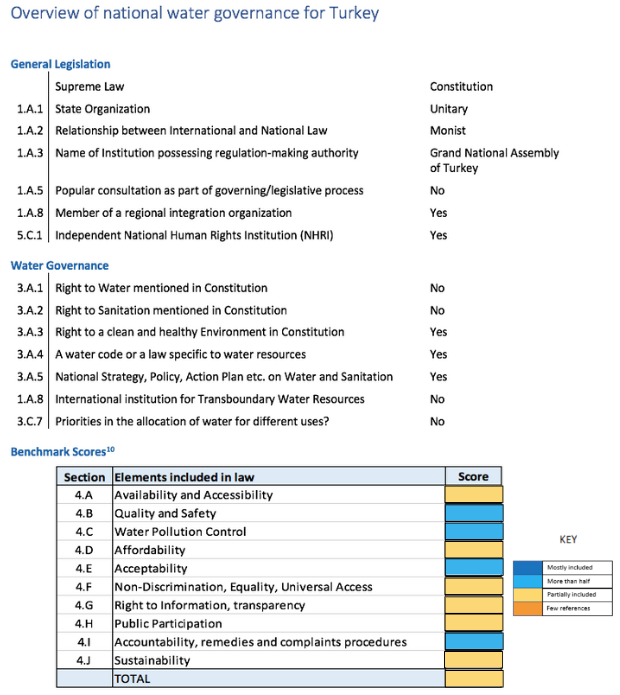“It is the duty of the State and citizens to improve the natural environment, to protect the environmental health, and to prevent environmental pollution.” The human right to a clean and healthy environment (HRHE) has been established as a priority for Turkey and the authorities have taken different measures to guarantee its protection and conservation. The Turkish constitution states that “all people have the right to live in a healthy and balanced environment” and therefore the State has established the necessary legislation to take required measures to protect it.
Turkey has a unitary presidential democracy and a constitutional republic. While the human right to water and sanitation is not mentioned in the constitution, the right to a clean and healthy environment has been included. As a result, a water code and national strategies help to take care of the water resources as part of the plan to protect the environment. The country has established the General Directorate of Water Management (GDWM) in the Ministry of Agriculture and Forestry (MAF) to manage water basins. In Turkey, there are 25 river basins, of which five are transboundary, and the GDWM has elaborated several action plans to protect these.
When it comes to water governance, at a national level, the issues relating water administration fall within the competence of the MAF and the GDWM. The GDWM is in charge of the following departments:

- Basin Management Department
- The Water Law and Policy Department
- The Monitoring and Water Information System Department
- The Flood and Draught Management Department
- The Research and Assessment Department
At the local level, the MAF has established regional directorates to implement relevant policies and activities. Furthermore, there are other national ministries that relate their work to ensuring the human right to water and sanitation. For example, the Ministry of Health oversees public health which includes matters related to drinking water and bathing water quality.
Water Pollution Control
Water Pollution Control is an important aspect of Turkish water governance. “A pollutant source of any kind is contingent on a permit as a matter of principle”, as stated by the Regulations on Water Pollution Control regarding permits for discharging effluents. There are many mechanisms to control pollution and protect the environment and water resources. Turkey has also invested significant resources into controlling water pollution, as demonstrated by the high scores in our Country Legal Assessment.
Laws and regulations exist for the extraction and use of water. Municipalities and villages control the supply and management of surface water sources locally. There are no legislative priorities in the allocation of water since the public has a right to use water for drinking, washing, bathing, watering cattle, and for recreational purposes subject to certain limitations. The use of water is also connected to land ownership which means there is both private and general water in the country.
For detailed references and analysis please download the full report here.
Disclaimer: This is not a statement of compliance nor a legal review of this country. White & Case has provided valuable pro bono assistance for this project but bears no responsibility for the benchmarking of countries in the dashboard which reflects the sole view of Human Right 2 Water.
This information is a desktop review and has been generously provided as pro bono support, based on a preliminary research of the legal framework in this country. It will be verified by our legal team .in collaboration with local authorities.

